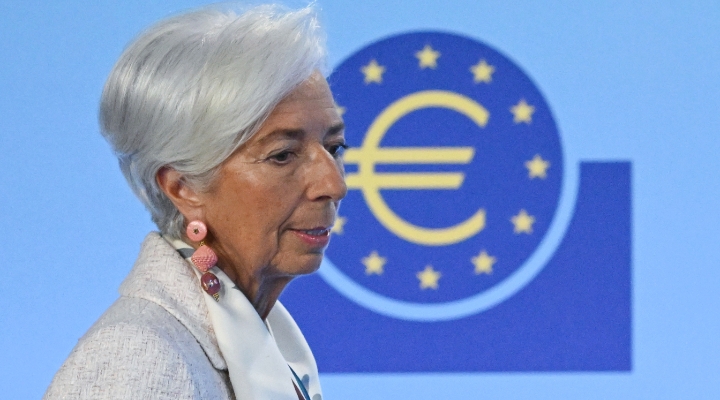
The European Central Bank (ECB) decided to hold interest rates unchanged in its first meeting of the year on Thursday, as had been widely expected, and did not give a hint as to when it might start cutting rates.
The euro dropped sharply against the US-dollar and equity markets ticked up after the rate decision was announced.
The bank reiterated it would keep rates high "as long as necessary", but the big question is how long that might be. The introductory statement left this unanswered.
When Will The ECB Start Cutting Rates?
"Despite cautious tones from the ECB, we believe rate cuts are likely to come sooner rather than later, with record high interest rates giving the bank plenty of room to maneuver in 2024", says Michael Field, European market strategist at Morningstar.
In recent weeks, ECB President Christine Lagarde has been pushing back on aggressive bets by the market on interest rate cuts. ”Of course, central bankers are not happy with added pressure from investors to cut rates, however, given the fragile state of the European economy, and with inflation down to just 2.9% in December, we believe the stars are aligning for pending rate cuts", Field says.
Financial markets are pricing in that the ECB will begin cutting key interest rates in the spring, with four more cuts to follow later in the year; some 150 basis points of cuts are expected in 2024.
In Thursday's statement, the ECB reaffirmed its commitment to reducing inflation further toward the targeted 2% level, with the belief that current rates are at the right levels to achieve this. "We would however point to how quickly and far inflation has fallen, as well as the trajectory, in support of rate cuts", according to Field.
"Ultimately, with the economy teetering on recession and inflation in the right ball-park at least, we believe the ECB’s focus may soon shift toward a more balanced approach of managing inflation alongside economic activity."
"The ECB dropped two phrases that could be interpreted as opening the door to rate cuts but could also have been dropped because there are no new forecasts: one on domestic price pressure being elevated and one on a temporary pick up in inflation”, adds Carsten Brzeski, chief economist at ING Germany on X (formerly Twitter).
Core Inflation Continues to Fall
The ECB confirmed its previous assessment of the medium-term inflation outlook: the downward trend in underlying inflation has continued, aside from an energy-related upward base effect on headline inflation.
Recent interest rate increases seem to be helping: "tight financing conditions are dampening demand, and this is helping to push down inflation", the bank said.
While many wage negotiations are ongoing, Lagarde told journalist that the ECB wage tracker is stabilising.
Eurozone Economy Remains Fragile
Recent macroeconomic data stoked fears the single-currency area might be headed toward a recession. Germany's Ifo business climate index was the latest weak reading as it fell from 86.3 to 85.2. Together with the recent fall in industrial production, this suggests that the GDP of Europe’s largest economy will contract again in the first quarter.
Next week, the Federal Reserve and Bank of England are set to announce their rate decisions. Last year, markets expected that central banks would start cutting rates simultaneously, and that is why even here in Europe there was such a focus on the Fed, according to Morningstar's Field.
But the US economy is in danger of overheating and inflation is up once more, so the Fed has a more difficult task on its hands, Field adds. In that way, uropeans should not be looking to the US to lead the way in monetary easing.




























